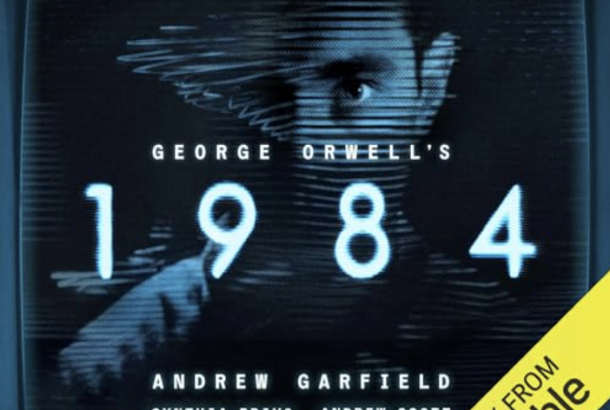Review: Malika Booker at the Manchester Literature Festival
By Maisie Scott
The backdrop to the reading by Malika Booker on Sunday the 8th of October was the International Anthony Burgess Institute, an old industrialist building with red brick walls and lofty ceilings, an appropriately un-stuffy setting for an emerging London poet to perform.
The rows of red velvet clad chairs set out for the audience to sit on and the upturned wooden crates for the water jug and microphones to rest, oozed a characteristically Mancunian edge. Arriving “just off the train,” Malika Booker instantly dazzled as she took to the stage, stopping to enthusiastically greet a friend on the cheek as she walked up to the stage it became evident that some familiar faces had come to support Booker with her performance.
The focus Malika Booker was asked to work on for her commissioned event was based on U.K. politics, but her approach also knitted it tightly to her own Caribbean background. Seamlessly, Booker unified British political turbulence with Black History Month, which runs throughout October.
However, she confessed it was not without complication due to the fear that you may “lose the poetry” because you are trying to respond to current affairs.
Understandably, it can be hard to find poetic beauty whilst considering a dismal political climate that contains deeply divisive figures such as Donald Trump and our very own Nigel Farage.
Despite this, Malika Booker was still able to offer her captivated audience a new poetical compass by which to navigate the post-Brexit seas by breaking down speeches by key players such as the headmistress tones of Theresa May, adding an extra Caribbean flavour.
First, she dissected the actual speech of the political figure in question and then she placed it in a couplet with her own Caribbean-inspired response. To considerable comic effect, she made a distinction between the political jargon and her own response by leaning to stage left when quoting from the speech, and to stage right when speaking her own thoughts.
On some level Booker’s use of bodily movement to show the distinction between the fat cats of politics and her private reactions, is reflective of a general feeling in society that those with all the power aren’t actually able to — or choose not to — enact the will of the people. Her theatrical movements reinforced the top-down nature of British politics, leaving UK politicians seem like little more than trustees of an unquantifiable amount of power.
She swiftly undressed UK politicians in her poetry by linking their characters and manner to her chosen animals, which subsequently informed her poetical response to the politician’s speech. An unforgettable set of distinctive images of Caribbean animals were planted into the audience’s minds — Theresa May as the ram goat and Nigel Farage as the crapo frog.
Brexit was powerfully presented as analogous to a divorce. May’s Florence speech was used to encapsulate this sense of two lovers parting. A highly transactional divorce was exposed in which one party knew they had to part, but for the sake of the children, it was decided that it would be best if the couple could still work together.
Cheekily stated in her poetic response, Booker exclaimed:
“we do wish for the EU to succeed like outside woman creeps to please”.
Manchester itself had a heart-warming starring role in Malika Booker’s performance as she spoke highly of the tender, lyrical qualities the speech that our Mayor, Andy Burnham, gave following the Manchester Arena bombing. Labelling the speech as a “delight” and praising how he so astutely grasped the spirit of the people at such a sorrowful time, Booker certainly knew her crowd with her tribute to Manchester, telling us we’ve “Got to be proud of Andy”.
A few highlights from Booker’s previous poetical works were also read. A recent piece, Nine Nights took centre stage, due to the charisma with which it was delivered and the way it spun a traditional Caribbean funeral on its head.
Booker emphasised that in the Caribbean community funerals are a big affair and that it is all “what happened?” and “what was she wearing?”. The timely resurrection of the dead young man, Lazarus, midway through the poem shattered this sense of social order most spectacularly. The greatest tragedy no longer being a youth’s funeral, but that a mourning dress is to go to waste “Mr Power start moan bout the good good money he dash way on pretty funeral frock for Betty and now she can’t even use it.”
The background to the poem consisted of primary research into how Caribbean people perceive funerals which she achieved by interviewing people on the streets. This first-person basis to her poem, adding an element of social anthropology into her work as well as considerable laughter, was a recurring theme throughout the evening.
Malika Booker was keen to praise the Royal Literary Fund who supported her when she was at her most “dire — financially” prior to becoming a fellow at the University of Leeds.
The RLF also can be credited for the motivation behind the event. The association works as a benevolent fund to help writers suffering from economic hardship; previous benefactors include writer, James Joyce and poet, Dylan Thomas. Many partnerships have been established between the RLF and universities including our very own.
RLF writing fellows can be contacted through the University of Manchester to help give students guidance with their writing style and essay structure, independent of the university.
What was most striking about Booker’s work and her manner was her honest, playful approach. She maintained that poetry is becoming increasingly popular as people are realising that the language of politicians is failing them. Booker’s energy bounced off all four walls and left us not with a taste of despair about the current political state, but rather a final warming message that if our newspapers and politicians are failing us then poetry can be used to help find meaning in the midst of this political zoo.







